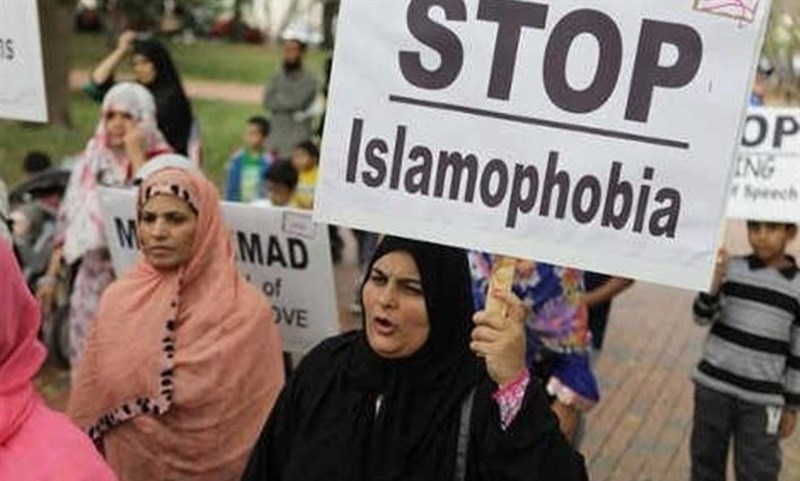LONDON – Two British teenagers were imprisoned for 10 and 12 years respectively for what the judge, Justice Cheema-Grubb said, “was not wishful thinking or fantasy, it was a real plot… You planned to murder teachers and pupils at your school in North Yorkshire by shooting them in a re-enactment of the Columbine massacre… (and that you intended to cause) terror on the scale of the school shootings that have been seen in America.”
The Guardian newspaper reports that “The two school-friends researched bomb-making techniques and began building a stockpile of weapons before counter-terrorism police swooped last October.”
While this has been reported in the mainstream media, the story didn’t make the front page, nor the headlines of online websites. Why? The boys’ names are Alex Bolland and Thomas Wyllie, both Caucasian and so ceremonially not fitting the now normalized description of terrorists, who happen mostly to be brown.
On the same day, July 20th, The Guardian newspaper confirmed this assertion with an article on another page of their website titled “Terror attacks by Muslims receive 357% more press attention, study finds.”
Research from the University of Alabama observed that “terrorist attacks committed by non-Muslims (or where the religion was unknown) received an average of 15 headlines, while those committed by Muslim extremists received 105 headlines.”
Also on the same day, July 20th, The Guardian newspaper reported an increase in the number of anti-Muslim attacks taking place in the UK, with women being disproportionately targeted.
Citing a report by the organization Tell Mama, there has been an increase in Islamaphobic attacks, with 1,201 submitted in 2017, with more than two-thirds of the attacks and abuse occurring offline. The report noted that 6 out of 10 victims were women, while 8 out of 10 perpetrators were men, with the majority aged between 13-18.
However, we do not have the full picture. The Guardian article says, “Tell Mama said victims were often let down by the poor recording of incidents and were sometimes left feeling dismissed.”
Imam Atta, the director of Tell mama said, “The world feels a more unstable space and in all of this, the voices of victims and outcomes for them in terms of access to justice have not been great.”

Stereotypes!
Also on the same day, July 20th, The Guardian carried an article entitled “There is no honor in ‘honor killings, only male shame.”
Labour MP Naz Shaz writes, “Saturday 14th July marked the National Day of remembrance for Victims of Honor Based Violence, a day established to commemorate the birthday of Bradford-born Shafelia Ahmed, murdered by her parents in a so-called honor killing in 2003. It took nine years to bring her killers to justice. And today marks the second anniversary of the brutal rape and murder of my constituent Samia Shahid. Another senseless death, another ‘honor killing’ and another woman denied justice.”
Also on the same day, July 20th, The Guardian ran a story, “White fright: the plot to massacre Muslims in the US media ‘ignored,” writing, “In 2015, the Muslim community of Islamberg, in upstate New York, discovered that a Tennessee minister, Robert Doggart, was plotting the deadliest attack on US soil since 9/11 against their village. Yet many Americans have never heard of him, and the community feels its fears over safety have been ignored.”
Reading these five articles in a single day shows how Muslims are stuck between a rock and a hard place. On the one side, we are stereotyped as terrorists when reports of criminal behavior, be it culturally inspired such as honor killings or acts of terrorism, are given priority in media coverage, presenting all of us as being responsible for the actions of the few. On the other hand, reports of similar criminal or terrorist behavior are not getting the same degree of attention or coverage.
Muslims, whether here in the UK, or in the US, may at times struggle with identity politics, and have certain negative elements within them (every community does) but on the whole, we are positive contributors to the societies in which we live.
In an age of near-instant information, it is our responsibility as a community to actively challenge both negative behaviors internally, but also to actively reach out to our neighbors, near and far.
To be active in community events. To show that even within the Muslim community there is a diversity of interpretation, but this is not something to divide or separate us from society. Rather it is simply that thing which reflects the diverse fabric of human life and culture.
In one of his statements, Prophet Muhammad once criticized those who escaped from society instead of living and being a part of society. So it stands to our obligations as human beings to continue positive work, positive contributions and to work with our non-Muslim friends and neighbors, sharing what we all have in common: kindness, humanity, love, and decency.
The past couple of years has seen the National Zakat Foundation here in the UK point out that one of the categories of zakat is to bring people and communities together.
We must start using zakat not just to help the poor – which is admirable and should always be encouraged – but also to better represent ourselves in the societies in which we live and to provide an accurate counter-narrative as and when it is needed.
We know we are much better than how we are often presented, we should, therefore, work to better reflect who we are.